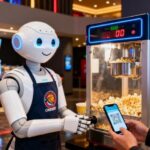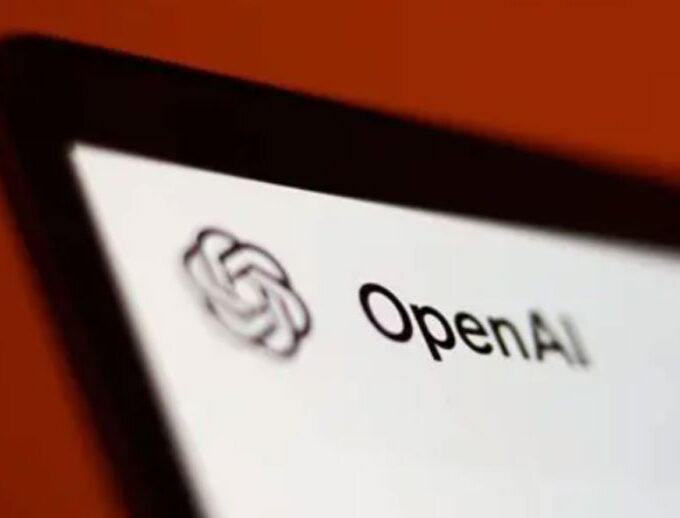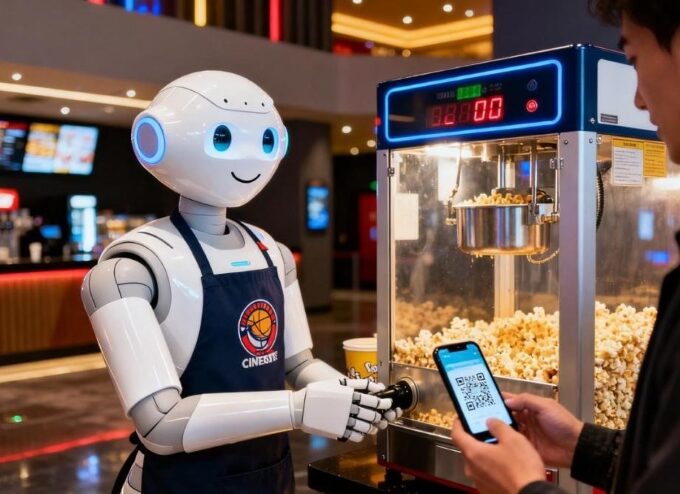According to a report by Wired, in an open-plan kitchen located in Mountain View, California, a new household robot named Memo is demonstrating its skills: it can make coffee, fold clothes, and clean. While its movements aren’t lightning-fast, its performance is impressive enough for a machine.
Memo is the latest creation from startup Sunday Robotics. It has an extremely friendly appearance, bearing a strong resemblance to the character WALL-E from the Pixar movie: an all-white body, two flexible arms, a friendly cartoon-like face, and it even sports a playful red baseball cap. Memo stands 1.7 meters tall and weighs approximately 77 kilograms. Unlike full-sized humanoid robots, Memo forgoes complex leg designs, instead using a wheeled base for movement and adjusting its height by sliding a central column on this base.
During the demonstration, Memo responded to the command to “make a shot of espresso.” It glided over to the counter and used its pincer-like hands to slowly yet precisely complete the entire sequence: dosing the coffee grounds, tamping them, installing the portafilter, placing the coffee cup, pressing the start button, and finally retrieving the hot coffee.
“We want to build robots that can completely liberate humans from tedious chores like laundry and washing dishes,” said Sunday Robotics co-founder and CEO Tony Zhao, as the robot handed him the coffee.
While making coffee might not sound particularly novel, accomplishing this task in a real, messy home kitchen is extremely difficult for a robot, requiring integrated capabilities to recognize different objects, determine how to grasp them, and correctly use tools. Most current industrial robots can only repeat single actions in tightly controlled environments and cannot handle unexpected changes like humans can. Beyond making coffee, Memo also demonstrated more advanced dexterity: clearing glasses from a dining table and loading them into a dishwasher. One of the most impressive moments was when Memo managed to grasp two glasses simultaneously with one hand, holding one between its thumb and index finger while cradling the other with the rest of its palm. This human-like dexterity stems from an innovation in data collection methods by Sunday Robotics.

Current robot training often relies on teleoperation, but Sunday employs a more intuitive approach: they hire remote workers to wear specialized sensor gloves (costing about $400 per pair) to simulate household tasks. These gloves provide more precise training signals than traditional controllers. The motion data generated from these human demonstrations is then fed into AI models, combined with the robot’s own sensor data, to control its movements. Sunday states that this data collection effort has generated nearly 10 million episodes of real-world household task data, which the company claims is an unmatched dataset in the household robot domain in terms of diversity and scale.
Ken Goldberg, a robotics expert at UC Berkeley, commented on this: “This is a very exciting variant of a home robot, beautifully designed, and with a smarter approach to data collection.” Sunday Robotics adheres to a “full-stack” development approach, manufacturing the hardware themselves while also training the models that enable the system to learn. Zhao admitted, “This is an ambitious goal.” As large language models demonstrate capabilities in understanding commands and contexts, the robotics industry is experiencing a wave of optimism. Researchers hope that collecting massive amounts of motion data can foster the development of more general-purpose robot intelligence.
The team background at Sunday Robotics is notably stellar. CEO Tony Zhao previously contributed to Stanford University’s Mobile ALOHA project, and CTO Cheng Chi was a key member of a collaborative project involving Stanford, Columbia University, and the Toyota Research Institute. Tony Zhao stated, “The most powerful AIs, like ChatGPT, are trained on the entire internet. But in robotics, there isn’t a ready-made data source like the ‘internet’.”
According to the latest news, several startups including Physical Intelligence, Skild, and Generalist are racing to develop robot models that can adapt to new environments. Sunday Robotics, with its seasoned team including veterans from Tesla and Google DeepMind, has won favor with investors. Sunday Robotics plans to offer Memo to beta testers next year. This pilot program will test the robot’s reliability in real home environments, complete with children, pets, and unpredictable messes. Zhao envisions that, much like early home computers, Memo might initially attract geeky users who are eager to embrace future tech and tolerant of initial product roughness. In the future, users might even be able to teach their robots new skills themselves. Perhaps the era of truly capable household robots is close at hand. While it’s still too early to talk about widespread adoption, for now at least, Memo can serve you a decent cup of espresso.












